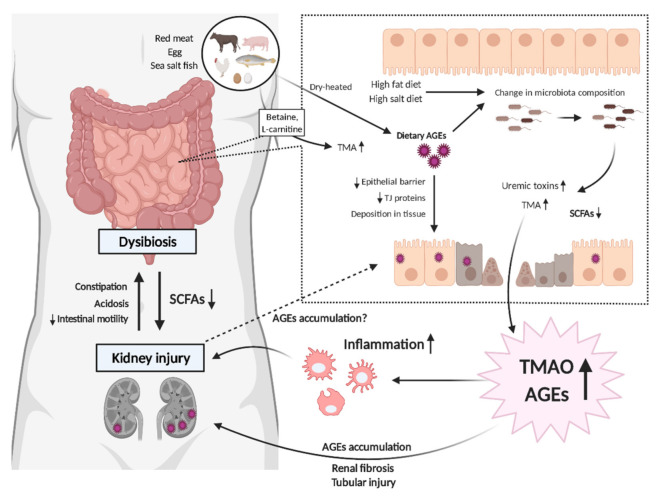Figure 1.
Schematic of the mutual link between gut dysbiosis and uremic toxins in chronic kidney disease (CKD). Excess dietary intake of advanced glycation endproducts (AGEs) affects the composition of the gut microbiome, leading to further uremic toxin production, which results in kidney injury. AGEs deposition in the gastrointestinal tract also disrupts the epithelial barrier, allowing bacterial components and endotoxins to flow into the systemic circulation, which, in turn, leads to other organ damage. The high burdens of uremic toxins such as trimethylamine N-oxide (TMAO) or AGEs are linked to progressive tubular injury and renal fibrosis, which are associated with the development of CKD to end stage renal disease.

